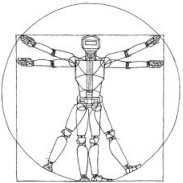Robotics: Science and Systems XI
Three's company, or a crowd?: The effects of robot number and behavior on HRI in Japan and the USA
Marlena Fraune, Satoru Kawakami, Selma Sabanovic, Ravindra de Silva, Michio OkadaAbstract:
In everyday applications of robotics, people will likely interact with groups of robots. Most human-robot interaction (HRI) research to date, however, has studied humans interacting with individual robots. Initial research suggests that humans respond differently to individual robots and robots in groups, making responses to groups of robots critical to study. This paper presents a study performed in a public setting familiar to participants (university cafeterias) to examine how participants respond when robots, individually and in groups, enter their space. We examined participant survey and behavioral responses to different numbers of robots (Single or Group) with different behaviors (Social or Functional). Because robots will be used across cultures, we performed the study in Japan and the USA. Across cultures, we found that people interact more with robots in groups than single robots, yet report similar levels of liking for both; participants also rated social robots as more friendly and helpful than functional robots in general. They rated single social robots more positively than a group of social robots, but a group of functional robots more positively than single functional robots. Japanese participants reported liking the robots more than USA participants. This suggests that researchers and designers should be aware of how robot characteristics influence group effects.
Bibtex:
@INPROCEEDINGS{Fraune-RSS-15,
AUTHOR = {Marlena Fraune AND Satoru Kawakami AND Selma Sabanovic AND Ravindra de Silva AND Michio Okada},
TITLE = {Three's company, or a crowd?: The effects of robot number and behavior on HRI in Japan and the USA},
BOOKTITLE = {Proceedings of Robotics: Science and Systems},
YEAR = {2015},
ADDRESS = {Rome, Italy},
MONTH = {July},
DOI = {10.15607/RSS.2015.XI.033}
}
